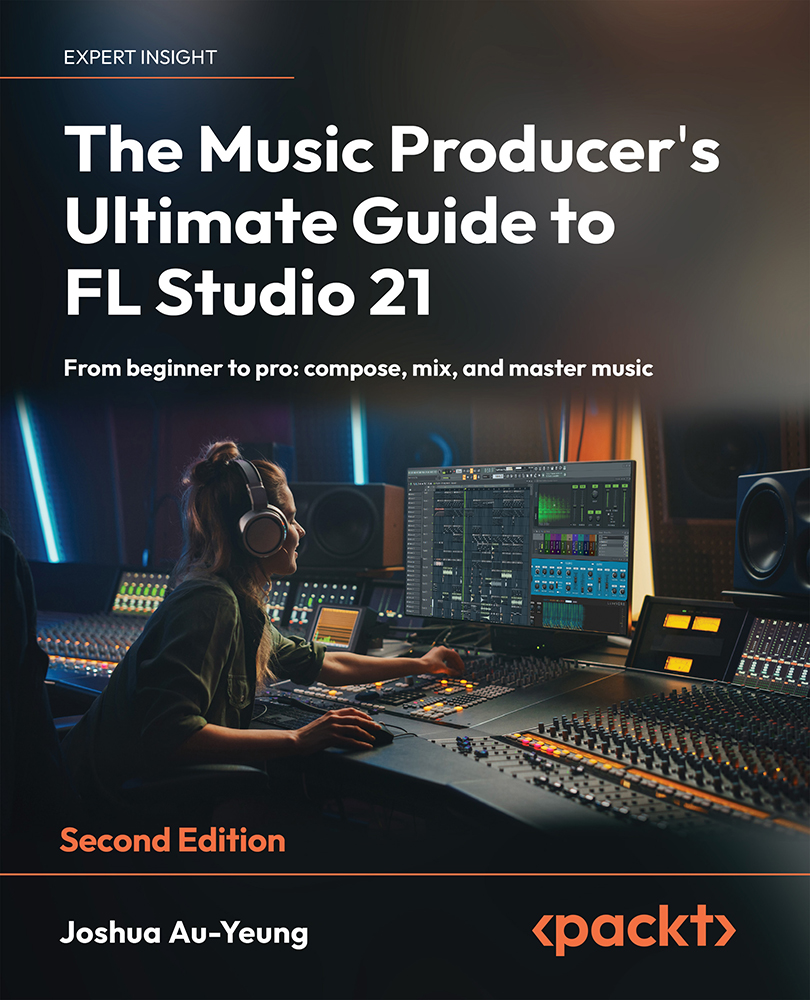Using the piano roll
The piano roll is the tool for composing melodies. The piano roll is essentially a piano with a timeline. On the y axis, note pitches are shown, and on the x axis, time is divided into a grid of beats and smaller increments of beats. Notes are displayed as horizontal bars, as shown in the following screenshot:
Figure 3.1 – Piano roll
Let’s talk about what the piano roll is great at. The piano roll is really good at taking a melody and mapping out the exact timing. It’s easy to generate chords and experiment with notes that complement your melody. It’s also good at comparing the timing of notes to other instruments playing in the same pattern and jumping between instruments. We’ll explore these in detail throughout the chapter.
If you need help with coming up with melody ideas, here are a few quick suggestions. I like to have a physical instrument nearby that I can use to experiment with chords or a melody. I...
































































